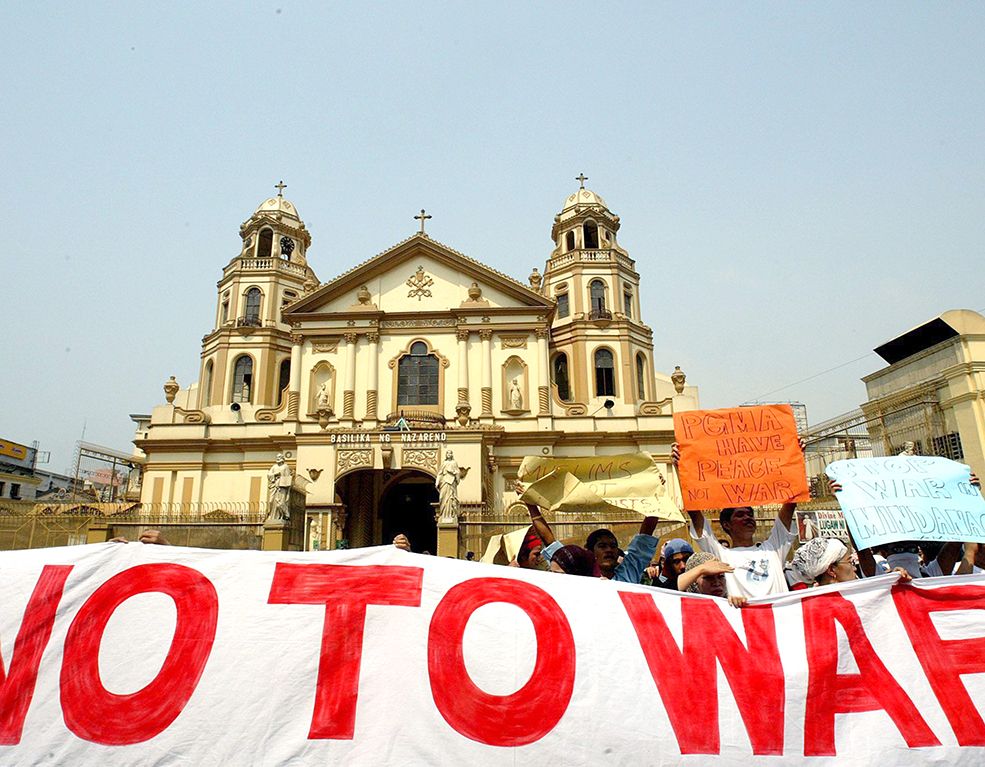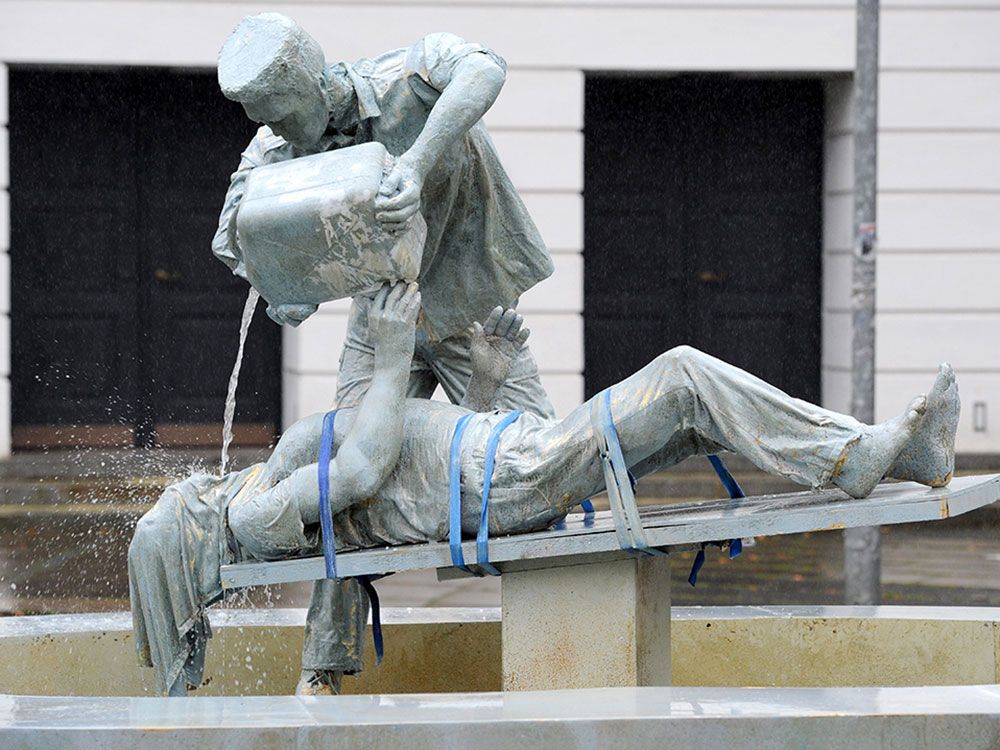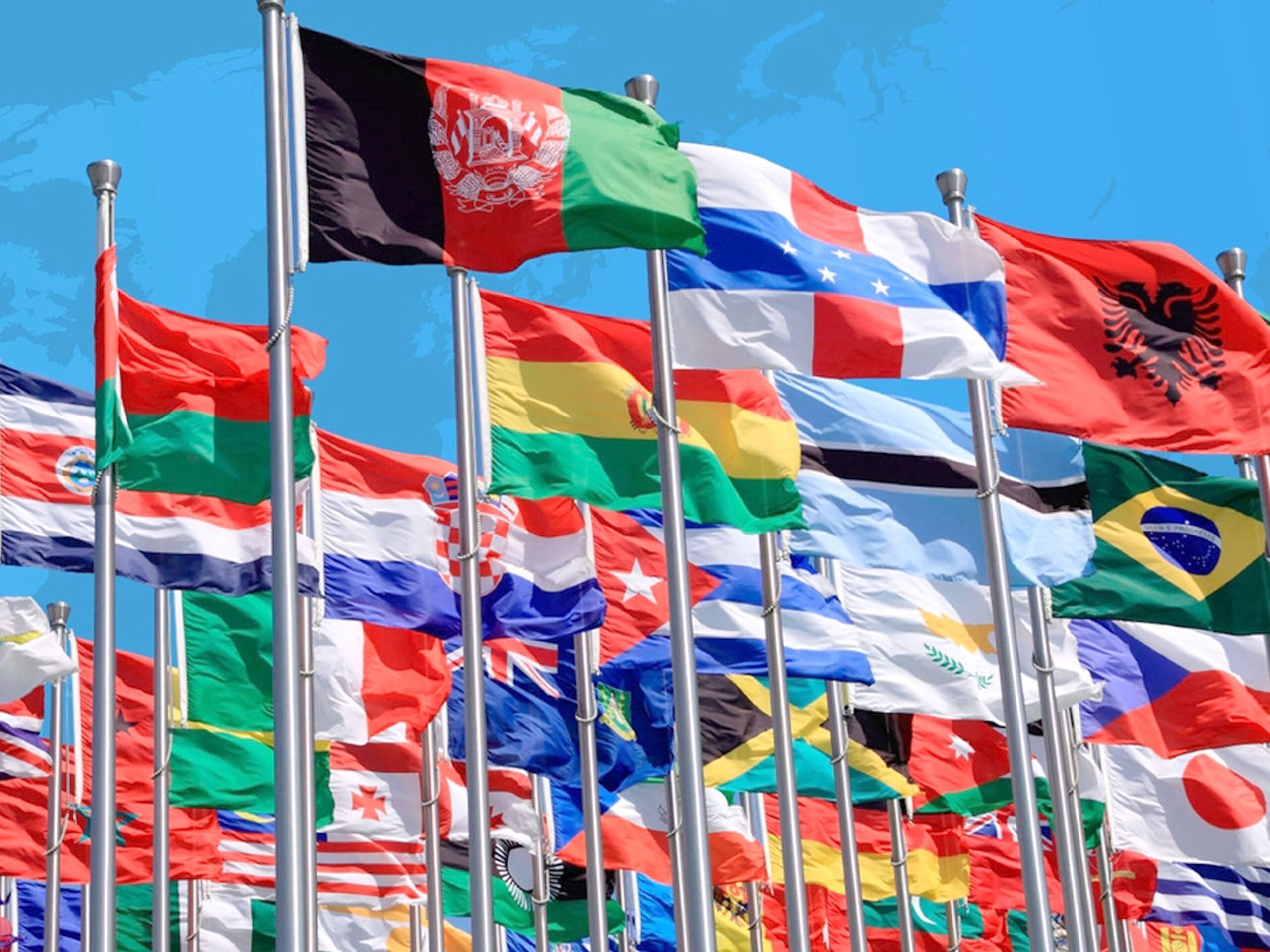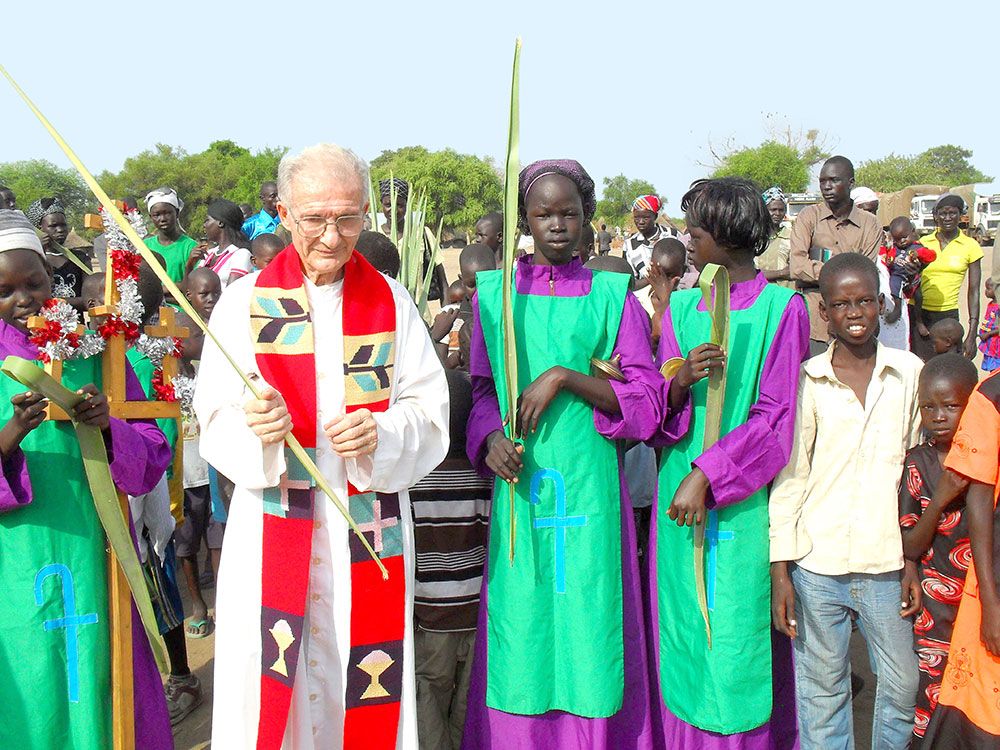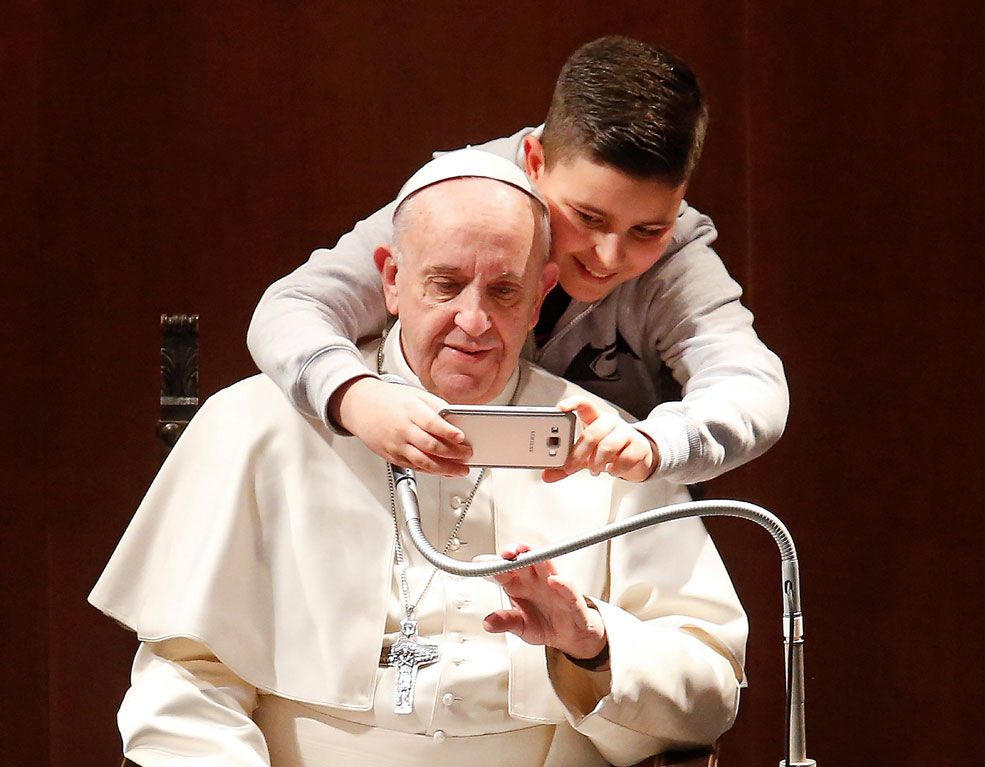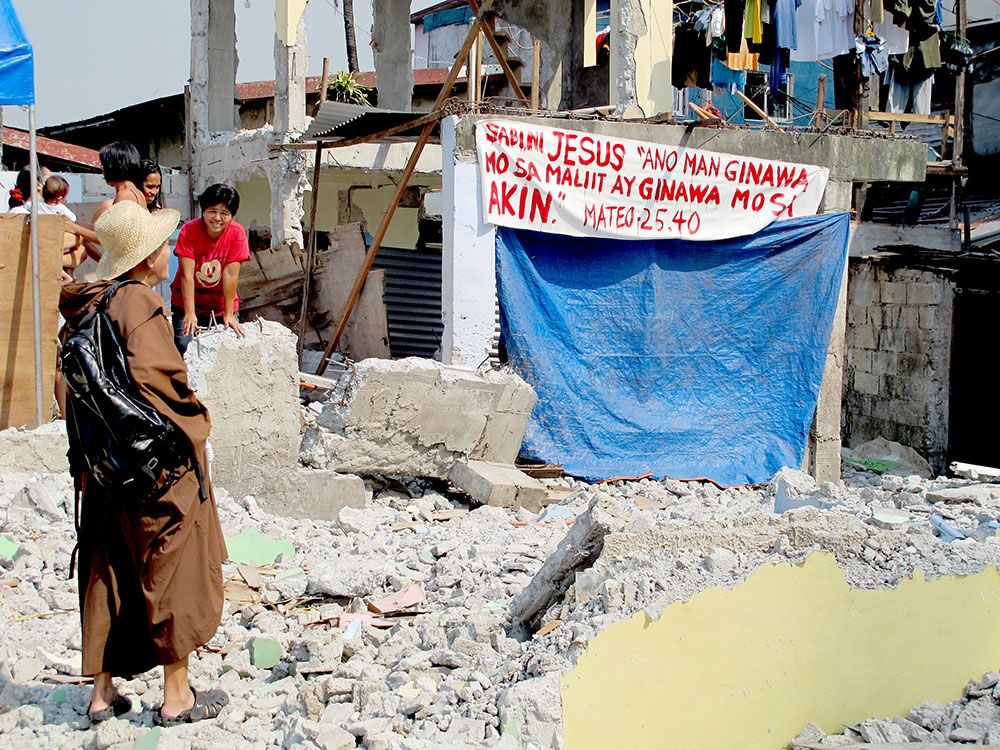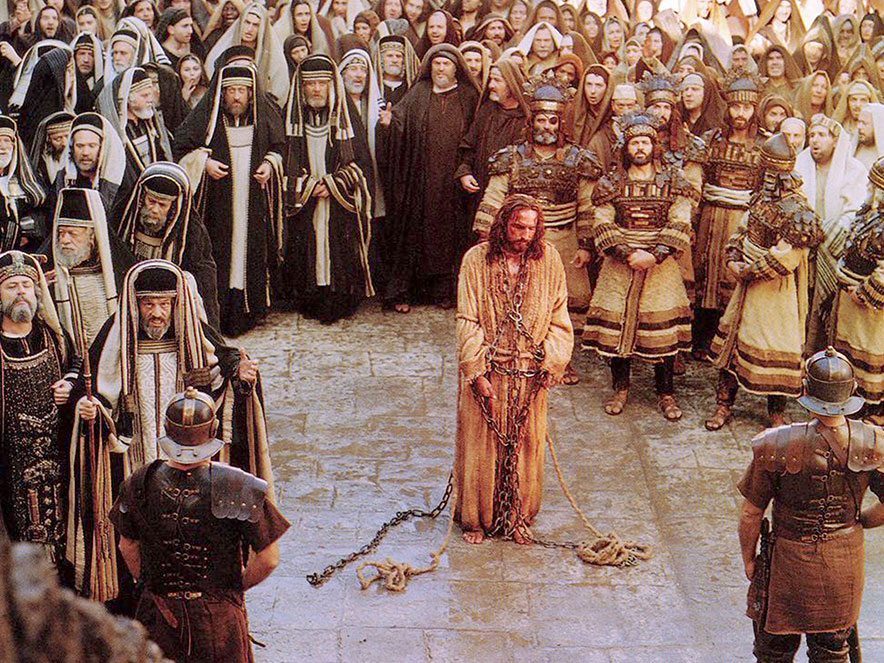Mission is not just going to an alien world bereft of God’s presence. Even if today, in large parts of the world, the “God–question” itself seems to have disappeared from human consciousness while, on the other hand, dramatic situations make people cry “Where are You, God? The Spirit, who permeates all creation, enjoins the Church in mission: “Remove the sandals from your feet, for the place on which you are standing is holy ground” (Ex. 3:5). Mission is not a crusade, but unfolds as a faith acknowledgment and an act of adoration for a God who is already there. The entry point of mission is the universal presence and activity of the Holy Spirit. This makes also, of today’s crisis, the favorable time.
The Spirit, who blows where She chooses and never ceases to amaze and surprise, confronts mission with the mystery of God. Rediscovering the mission of the Spirit in the world, whose role cannot be solely that of being a Garantor of the Church and her mission, means to let God be God, without locking Him in a cage. Mission is, first of all, God’s mission, and who can know all the ways of God? Mission starts by a constant waiting for God to manifest Himself, and an ongoing invocation of the Spirit who knows the depth of God (cf.1 Cor. 2:10). The paradox of the missionary proclamation is that God is ‘experienced’ rather than ‘spoken about,’ and the experience of God is a ‘gift’, a work of the Spirit. Rather than being the ‘God–object’ of knowledge and preaching, God is the Subject of the religious and missionary discourse, and always remains a “surprise” for the missionary Church herself. At the source of the word of a missionary proclamation is the grace of a glimpse into the unfathomable mystery, to be shared in humility and gratitude. Mission is not about possessing an all–embracing truth; neither can it provide a “grand story” that explains everything, everywhere, always. Certainly, a Christian community has come to know Jesus Christ as the One in whom there is fullness of “grace and truth” (Jn. 1:14), but the mystery of the “ineffable and hidden God” still remains, so much so that Jesus on the cross, the greatest moment of God’s encounter with the world, is also the moment of His deepest concealment – an event that confuses all human perception about God and gives rise to a holy restlessness. Here is where mutuality, between the Christ event and the action of the Spirit in the world, becomes relevant. Focusing primarily on Christology could lead the missional Church towards a ‘backward’–oriented vision, intent on imitating what Jesus Christ had done in the past, while the Spirit is, instead, bringing the newness of the Christ event to bear on the present and letting mission come face–to–face with God’s mystery again and again. Michael Amaladoss points out, “Today, mission without mystery is oppressive.”
With the Spirit as the Principal Agent of mission, mission is finding out where the Holy Spirit is at work and joining in. Mission becomes a journey for discovering the traces of the Spirit’s presence and activity in the world: a gathering up of the fragments of a ‘mosaic’ in the making. Its final composition is known to God alone. Through each finding, the missionary Church herself is spoken to and “surprised” by God. Essential to mission are, then, an attitude of historical contemplation and listening, a Spirit–given capacity of reading events both within and without the Church(es), religious and secular alike, as signs of God’s self–communication. Going out to bring God where He is not or not properly known, mission becomes a journey to meet God: a ‘pilgrimage’ and a passage of purification from old and new propensities to a sense of superiority, conquest, proselytism or fundamentalism. What characterizes a ‘pilgrim,’ in relation to any other wayfarer, is that the pilgrim looks for something of which she/he has already had a foretaste, attracted by what she/he had already heard about, seen or touched (cf. 1 Jn. 1:1–4). So it is for the Christian pilgrimage of mission. It is the experience of God, mediated by an encounter with Jesus Christ, that is the source and support of the journey. As well, the story of Jesus is the star of orientation and the criterion for discerning the spirits, so that it might be possible to recognize, in the web of creation and of human events, the tapestry of God’s kingdom that the Spirit is weaving. Through Her action in the world, the Spirit continues to recreate the image of Christ so that, in going out to the wider world to witness for Christ, the Christian community would encounter and discover Him ever anew.
More specifically, the Spirit’s presence and activity in the world makes mission a shared–pilgrimage: a global conversation in a context of mutual hospitality.
By guiding mission to the path of pilgrimage, the Spirit leads the missional Church to encounter ‘others’ as companions on the same journey. The “other,” too, is a witness and bearer of the Spirit’s action in the world. Religious and cultural pluralism becomes a place and a manifestation of the Spirit in Her freedom and in the richness of Her gifts. In order to discover, in concrete situations, the ways of God’s kingdom and to join in the work of the Spirit in the world, the missional Church needs to merge relationships with these ‘others’ and make with them a common journey of intercultural and interreligious exchange. The proclamation of the Gospel takes, then, the form of a ‘story sharing’ – a listening to the Spirit by listening to each other, in one’s own diversity. The Gospel story itself grows by turning it into an open narrative that interacts with the concrete and multiple experiences of different people. Along such shared pilgrimage, mission unfolds as a global conversation. ‘Global,’ in that it engages Christian denominations, religions and cultures, together with all the forces operating in secular processes of social transformation. ‘Conversation’ unlike ‘dialogue,’ its synonym, is capable of more partners and different modes of communication, and is more indicative of a ‘receptive’ dimension and suggestive of a community of life and feelings, according to the dynamics of mutual hospitality. In this manner, from being a one–way movement, mission becomes a two–way movement of giving and receiving, between mission “to the nations” (ad gentes) and mission “among the nations” (inter gentes), as pointed out by the Federation of Asian Bishops Conferences. By enabling such a sharing among pilgrims, amidst so many barriers that divide today’s world, the Holy Spirit not only makes us dream of messianic dreams, but also to anticipate them. In the ‘incompleteness’ of today, the Eschaton of reconciliation is already made present and active and, in the mutual hospitality, a foretaste of the ‘conviviality’ of God’s kingdom is already given while, on its part, the Christian community is led to a fresh and new understanding of the mystery of Christ.
The Spirit of transgression and boundary–crossing and mission as prophecy and ‘martyria.’ The Spirit is not always pictured in the Bible as a ‘gentle breeze’; She can also be a raging and disruptive storm. There is a world plagued by the culture and mechanisms of death that the Spirit, the Giver of Life, needs to confront with, as there are classification systems and structures of domination to be faced in order to pave the way for the coming of the kingdom of God. Throughout both the Old and New Testaments, God’s Spirit is the Spirit of prophecy, both in word and deed, for the pursuit of justice hindered by sociological and even religious barriers. Thus, as the Spirit brings Jesus to the forceful action of temple cleansing, distinguishes the unclean from the clean inside out, to reach out to those who were excluded by the taboos of the society and to share the table with the outcasts of the society, the same Spirit leads the early Christian community to go beyond the boundary that separated the Jews from the Gentiles, and to attempt a new way of social living with a radical communal sharing of goods (Acts 2 and 4).
A frank and constructive dialogue with all gives space also to challenges from the Spirit of prophecy. In sharing with others, the missional Church witnesses, with “humble boldness” (David J. Bosch), to the Gospel as a revolutionary spiritual power, able to unsettle ingrained social ‘imaginaries’ (patterns), to name and engage forces of exclusion and violence, and to bring people to “strive first for the kingdom of God and His righteousness” (Mt. 6:33). A Spirit–driven and Spirit–filled mission leads us to seek “to live out within the present old order of the world, the truths and values of the in–breaking new order of the kingdom of God” (Christopher J. H. Wright): “[Jesus] said to them: “The kings of the Gentiles lord it over them; and those in authority over them are called benefactors. But not so with you; rather, the greatest among you must become like the youngest, and the leader, like one who serves”” (Lk. 22:25–26). Such prophetic mission has, however, its political price. The Gospel of Luke points out that the Spirit led Jesus into the wilderness, where, by refusing to conform Himself to “the available modes of oppressive or self–glorifying power” (James H. Cone), Jesus engaged in a struggle that brought him eventually to the cross (Lk. 4:1–13). The cross is the “hard edge” (J. Sobrino) of a Spirit-driven mission – of “God’s mission.” Martyrdom, as the extreme form of witnessing the boundary–crossing Spirit, might be the price to be paid.
“The Spirit is arising for us today from the underside of history” (Peter C. Hodgson): the Spirit makes mission a journey of ‘com-passion’ with the poor and oppressed. The cross of Jesus proves that the mission of the Spirit moves from the margins. The Good News is proclaimed to the poor. Much more, it is among the “wasted lives” (Zygmunt Bauman) that the great passion of God for the world reaches its climax – when, in Jesus Crucified, it turns into a participation in the passion itself of the world and becomes compassion, a sharing in the same suffering. This is the religious displacement created by the proclamation of the Gospel: the dream of God for the world does not come true by power, but by the gift of self. The Spirit leads Jesus to the cross, and from the cross the Spirit flows anew as the breath of a new creation. “It is among the powerless, oppressed, and marginalized that the Spirit is pouring itself out afresh” (Peter C. Hodgson). The ‘global conversation’ in search of the Spirit’s traces has then to start with the least and the last; who have been given the secret of the kingdom of God (cf. Mt. 11:25). Through them, the Spirit speaks and the Spirit empowers them to liberate themselves and their oppressors as well. In the style of Jesus, mission has to speak the language of love/passion of God for the poor and excluded. It also cannot be anything but a journey of solidarity with them. Only by sharing in the destructive experience of the victims and by being at their side in the struggle to transform the reality at the root of their oppression and to become ‘subjects’ of their own unique history, can mission claim to be a universal mission in the proclamation of the Good News.
The life–giving Spirit and ‘mission as worshipping God’ in the temple of creation. The fate of the poor and that of a depleted creation are strictly connected, not only because the poor are the first to suffer from a mismanagement of creation, but also because both situations are the fruit of the same cultural matrix of patriarchal–hierarchical domination, acquisitive violence and disembodying rationalization. One consequence of such a cultural paradigm is that nature is the ‘other something’ to be tamed, controlled and exploited for the advantage of human beings. This ‘anthropocentric’ view of reality is still traceable in the ambiguity of our daily and even theological language; thus, “world” and “creation” are often used in the sense of humanity or global society rather than the whole created order. The recovery of the Spirit present in creation, as a life–giving energy, expands the horizon of mission to include also the acknowledgment, respect and promotion of the whole created order as the cosmic temple of God and the communional womb in which human fraternity itself is nurtured. Neither can the story of humanity be divorced from the rest of the creation story, nor the redemption of humanity from the redemption of the whole world. Christian hope is about redemption of the world, and not from the world. The eschatological tension of mission is towards the multifaceted community of creation where God has His home (cf. Rev. 21:1ff.). If already mission, as a global conversation, takes on a dimension of worship as a shared pilgrimage towards God, then mission, as commitment to ecological justice and renewal, becomes a cosmic liturgy, the celebration of the “Eucharistic community of creation” (Jürgen Moltmann). It is not a question of reverting to a sacralization of creation, but rather recognizing that everything that exists is a gift from God and, as such, has its own sacredness. Respect for creation enhances human dignity.
The missional Church as an open charismatic fraternity, a sign of the Spirit’s work in the world. The rediscovery of the Spirit as the Principal Agent of mission becomes a critique of the dominant ecclesiocentric missionary paradigm. It highlights the ‘ex–centric’ position of the Church, as having her center outside herself and as being the first fruit and sign of the new creation that the Spirit is bringing about. As a ‘sign’ (sacrament), the Church is placed among peoples and nations to be the challenging and encouraging evidence of what the Spirit does in the world. In this sense, she is at the service of the Spirit and of others by playing a role, both of interpretation and of provocation, of “light” and “salt” as Jesus says (cf. Mt. 5:13–16). The Church has the responsibility to scrutinize and interpret the signs of the times and to engage also the others in the same process, by bringing them the light kindled from the Gospel. She does this first with her way of life and then with her word. As the world is transformed by the Spirit, so the Church, too, is shaped from within by the Spirit in order to be the sign of Her presence and action in the world. Three dimensions of the Church, as the Spirit’s sign, need particular appreciation:
1) The mission of the Spirit is constitutive of the Church. The Church is an event of the Spirit, and not only an institution. The structure itself of the Church has an epicletical and charismatic character. This makes the Church an “open system,” a kind of sacrament of “the unplanned future,” in which the Spirit represents the “element of dynamic unrest – if not of revolutionary upheaval” (Karl Rahner). 2) As an event of the Spirit who disrupts the various boundaries of separation and exclusion, the Church is, by her very nature, a fraternity; namely a form of new sociality based on inclusivity and reciprocity. 3) Both charismatic structure and fraternity find expression in a plurality and mutuality of gifts and services, so that the Church might reach out to the world. This means that the entire ecclesial ministry should be seen in terms of mission. Such integrated understanding of ministry and mission, as an expression of the mission of the One Spirit in the world, has still to be developed.
Plural and polycentric mission and the communion of local Churches. The universal presence and activity of the Spirit asks for an inductive approach to mission in relation to different contexts and cultures. The result would be a plural mission, both in theological interpretation and in practical form, and polycentric, centered on the local ecclesial communities, rooted in their different historical contexts. A local community, in fact, is well placed to discern the presence and action of the Spirit and to identify an effective missionary praxis. On the other hand, the same universal presence of the Spirit calls the different communities to fraternal communion and to form a missionary global network for an authentic and mutual enriching cross–cultural exchange. That would be, at the same time, a prophetic response to today’s globalization: a globalization of reciprocity and gift from below versus a globalization of market and profit from above.


